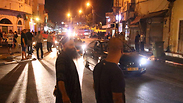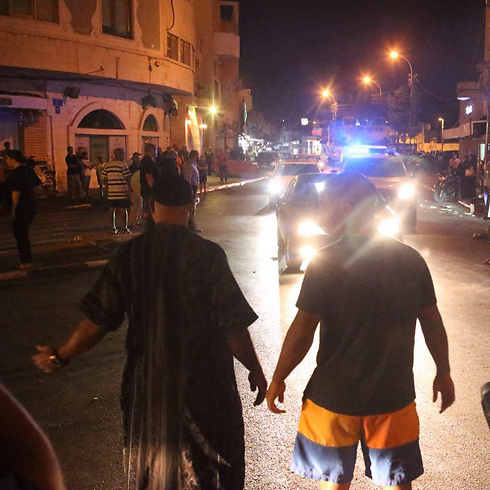
Israel's Arabs are no longer afraid
Op-ed: The events of October 2000 accelerated the political and cultural solidarity between young Israeli Arabs and Palestinians. There will be no cure for the current rage until the State of Israel recognizes the wrongs experienced by the Arab public.
In order to understand the event, one has to look at the last time Jaffa's Arabs made headlines following protests: The events of October 2000. It’s hard to overestimate the importance of those events in terms of the formation of the identity of Israel's Arabs: Following the disappointment from the Oslo Agreements, their solidarity with the Palestinians in the occupied territories grew, and like the events we are witnessing now, their rage at the time also stemmed from a shared fate of discriminated populations and a feeling of injustice.

In October 2000, the police and border police dispersed protests by firing rubber bullets in the first stage, and later with live ammunition. The feeling of alarm and danger among Israel's Arabs soared. The impression that the State of Israel did not see them as citizens with equal rights, but as an extension of the Palestinian "enemy" against which it can use force indiscriminately, sent an increasing number of Israeli Arabs to the streets. For the first time, Israel's Arab society made a significant, united demand for a governmental response and urged the government to take responsibility for the deaths.
Tuesday's protest in Jaffa, on the other hand, as opposed to what you have been told, was a spontaneous and pretty scattered event, and above all - ideologically weak. There was no uprising against the government's policy here and no call against racism, but simply letting off some steam.
Nonetheless, we must not underestimate the slow change taking place in the Arab society in Israel. No more Lieberman-style gratitude for out actual citizenship, but challenging the limited meanings of that second-class citizenship.
The prime minister in 2000, Ehud Barak, appointed a commission of inquiry following the killing of Arab protestors by the police forces, but it quickly turned into another wedge between Israel's Arabs and the government systems. The prevalent feeling to this very day is that the Or Commission cleared the involved government and police officials of extremely significant suspicions and that no one was punished for the deaths.
In retrospect, the October 2000 events accelerated the move we are witnessing today: Political and cultural solidarity between young Israeli Arabs and Palestinians. This move also serves as the basis of the growing popularity of parties which have made the Palestinian struggle their top priority, like Balad. Arab elected representatives who openly oppose what is happening in the territories are gaining credit, and the loudest ones among them evoke a feeling of solidarity. The public denunciation of these elected representatives, which has become trendy among right-wing Knesset members, resonates the exclusion and trauma of the October 2000 events.
There will be no cure for the current rage until the State of Israel recognizes the rage accumulated earlier, in the wrongs experienced by the Arab public. Israel's Arab citizens have decided to stop being afraid.










